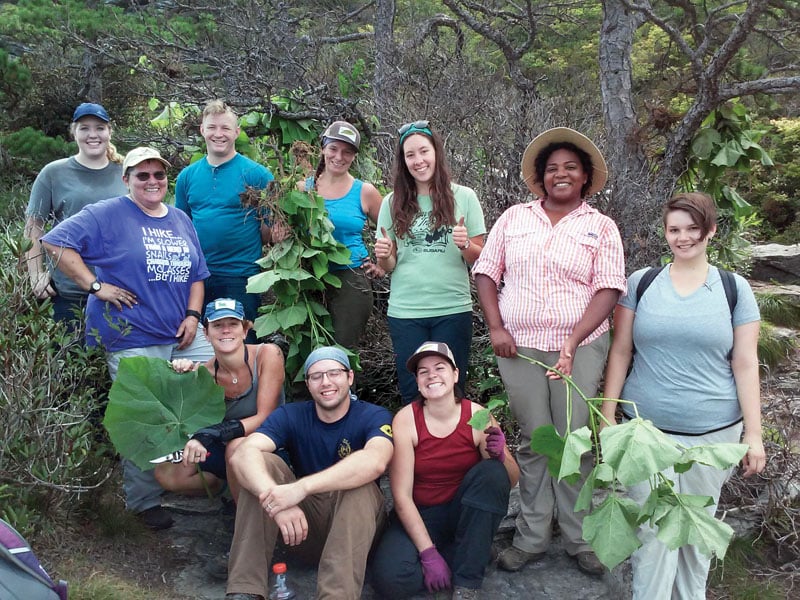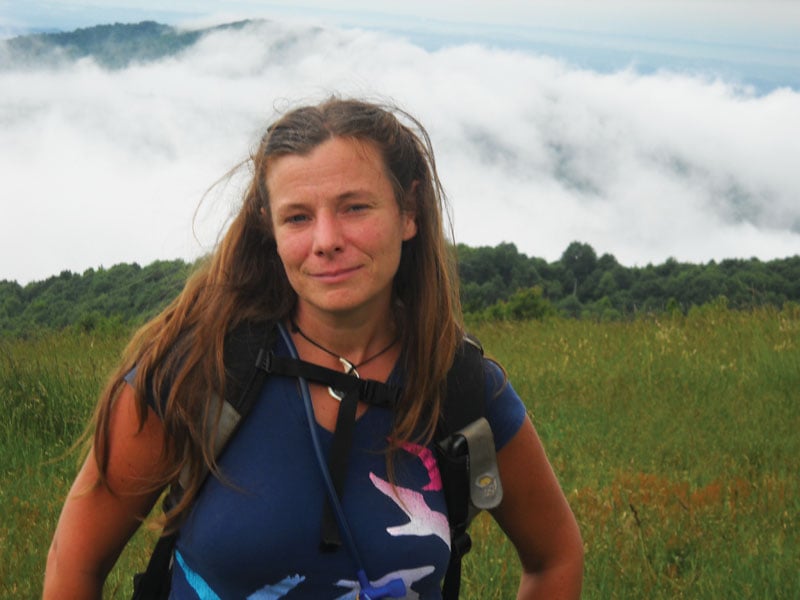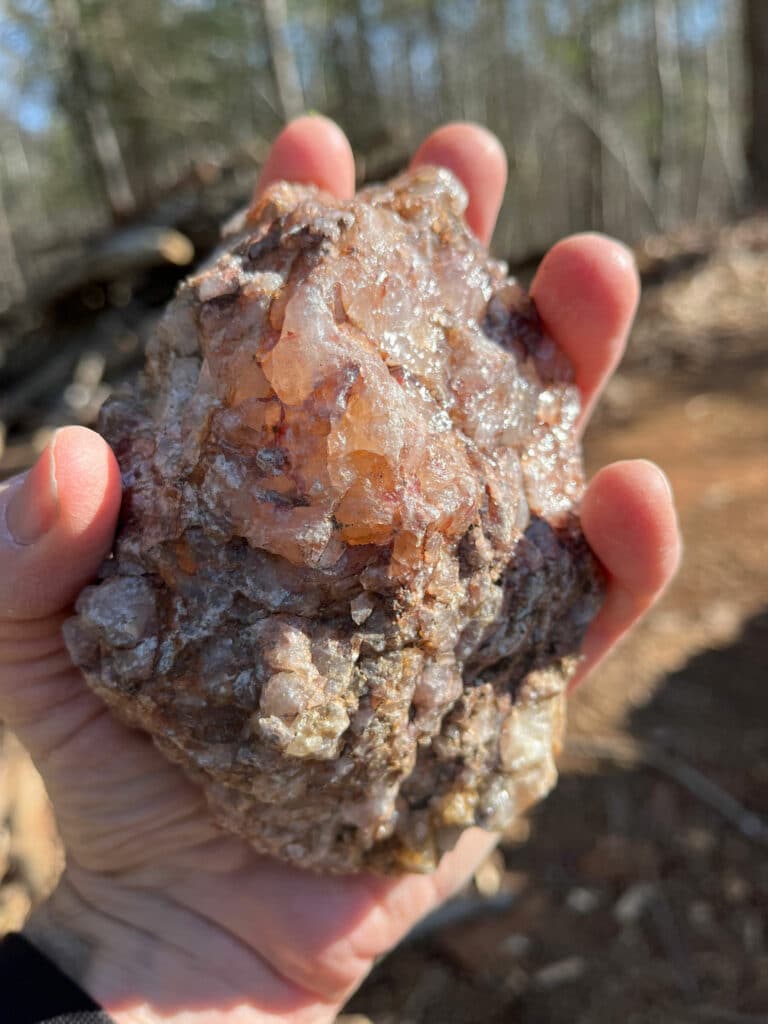The December death of Asheville climber and conservation champion Kayah Gaydish sent a tremor of shock and heartbreak through the outdoor community of the Southeast.
Gaydish lived a life that was defined by her stewardship and dedication to the wilderness of Western North Carolina, particularly within the 12,000 rugged acres of the Linville Gorge.
In her years working as a volunteer and on a part-time basis for the environmental nonprofit Wild South, she forged a deep connection to this beautiful and complex landscape. The majority of her fieldwork involved the grueling task of eradicating exotic species, in particular the aggressively invasive Princess Tree, which had germinated throughout hundreds of acres within the gorge after the 2013 wildfire. Native to Japan, the Princess Tree can grow up to 20 feet in one year, and will release millions of seedlings once it reaches maturity. The shade created by its spreading leaves can threaten the survival of native flora. Species such as the Heller’s Blazing Star and Mountain Golden Heather are endemic to Linville; once their populations are choked out, they are gone forever.
Using hand pruners and folding saws, Gaydish and her team uprooted thousands of saplings, hanging them to dry out on tree limbs to ensure they could no longer spread. She meticulously documented the hours they spent in the field, recording the names and locations of the many different non-native species that threaten the fragile ecosystem inside the river gorge.
An avid rock climber, Gaydish celebrated Linville as a mecca of outdoor recreation, brimming with opportunities for climbers, hikers and kayakers. As a naturalist and trained herbalist, she recognized the intrinsic value of wilderness. She possessed a talent for conveying to others just how vital each individual species was to the landscape as a whole.
So infectious was her enthusiasm that she was able to recruit an ever-expanding team of volunteers to join her in the field, a team that often included veterans and participants in therapeutic wilderness programs. Her magnetic blend of passion and sincerity inspired others to forge a lasting and meaningful connection to the Linville that was all their own.

“That’s the clarity she gave me,” recalls Kevin Massey, Linville Gorge stewardship coordinator for Wild South. “The work that I mostly did, trail maintenance, is all digging and hacking. You can do that with zero connection to the land. She taught me about plant lore, edible leaves, medicines—things that start to bind you to a place in a different way.”
An eloquent and animated man who speaks with a deep sense of conviction, Massey has stepped in to continue Gaydish’s role of organizing and engaging the Linville conservation community. Even before assuming the title of stewardship coordinator, he spent countless hours in the gorge, maintaining trails, removing trash, and conducting land surveys.
Massey describes his friend and co-worker’s efforts as “an example of extreme self-sacrifice.” Despite the abundance of joy she found in her work, he finds it poignant that any one person could give so many hours to a task as demanding as invasive species removal—particularly a single mother already working hard to feed her family.
In the six months since Kayah’s passing, Massey and others have worked even harder to continue the legacy left behind in Linville. Invasive species are being eradicated. Native plants habitats are being restored. And a wild gorge is protected by even more volunteers inspired by Kayah and her work.








